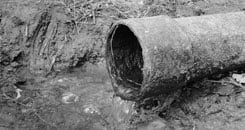
Food and farming
Right to know where tax dollars go
American attitudes toward food are undergoing a fundamental transformation. The signs are everywhere: farmers’ markets sprouting like spring wheat, farm-to-school programs, buy-fresh and buy-local campaigns, local food policy councils, local and sustainable institutional purchasing, community-supported agriculture in which a farmer sells shares of his harvest to the public. Organic products are among the fastest growing segments in the U.S. food market.
Yet U.S. food policy lags far behind these dramatic societal changes. Americans expect better. As EWG sees it, the best chance to fix the broken, outdated U.S. food system is the 2012 version of the federal farm bill. In fact, as the unfolding debate makes plain, this bill really should be called the food bill. This bill sets national policy for child nutrition programs such as school lunch and supplemental nutrition assistance to low-income families, soil conservation, agricultural price supports and production incentives. Corn, cotton, rice, wheat and soybeans account for 90 percent of farm bill money spent for growing crops.
Farm bills have traditionally authorized billions of taxpayers’ dollars for practices that encourage industrial grain farms to grow as much chemical-, water- and land-intensive crops as possible. In the future, U.S farm and food policies need to abandon perverse incentives that reward environmental degradation and discourage farmers from transitioning to healthier crops. Instead, our policies should help farmers protect water and soil and create a level playing field for all farmers.
To make the case, EWG has done what we do best. We’ve followed the numbers and told the real story behind the agricultural lobby's highly exaggerated talking points. In the spring of 2010, we updated and launched our enhanced farm subsidy database. The new database showed just how broken our food and farm system is by calculating that in 2010 the government sent $394 million in farm subsidy payments to absentee landowners living in nearly every major U.S. city. The database also showed that America's largest agribusinesses, not small struggling family farmers; collect most of the subsidy dollars.
Many reporters are using EWG’S farm subsidy database to evaluate Tea Party candidates who campaigned against wasteful government spending but accept substantial farm subsidies. As the 2010 campaigns got underway, EWG’s farm subsidy database was mentioned in the Associated Press and many regional outlets such as the Seattle Post Intelligencer and the Memphis Commercial Appeal.
EWG’s food and farm team’s reports -- “Clearcut Disaster,” “Driving Under the Influence,” “Kernel-nomics,” “The Other National Debt,” “Who Will Say No to Obama’s Cuts?” and “Bay out of Balance” -- helped drive the debate over ethanol policy, conservation practices and U.S. energy policy. They generated headlines in the Associated Press, Wall Street Journal, the New York Times, the Baltimore Sun and the Des Moines Register.
EWG’s blog AgMag has become a go-to resource for thought leaders in agricultural policy.
EWG’s first San Francisco Earth Dinner in March 2010 made an inspiring debut, selling out in weeks. Alice Waters, one of the most influential figures in the local and sustainable food movement, and other stars of the food world attended this evening of great cuisine and stimulating conversation.
Last April, we released our 2010 Shopper's Guide to Pesticides, with a special introduction by Dr. Andrew Weil, the wellness expert.
In August, EWG exposed an Obama administration proposal to fund $1.5 billion in retroactive disaster payments to Arkansas farmers that would have resulted in a six-figure windfall for hundreds of plantation-scale, highly-subsidized rice and cotton farms across the South. This flawed policy proposal garnered editorials that highlighted EWG’s work in the New York Times, the Washington Post, and the Wall Street Journal.
EWG's collaboration with FUNDAR, a Mexico City-based government policy watchdog group, resulted in a seminar about Mexican agricultural policy, which parallels many of the same bloated subsidies in the US agricultural system. Modeled after EWG’s farm subsidy database and developed with our technical support, FUNDAR has recently advocated reforms in Mexican transparency laws and established a database that has brought a new level of accountability to agricultural policy debates in Mexico.
The Des Moines Register and Energy and Environment Daily picked up our post-election analysis of status quo subsidy support by members of Congress, entitled “Democrats’ Bitter Harvest.” This analysis showed that many farm state Democrats did not win significant support through their ardent backing of the corn lobby and direct payments.
Last December, President Obama signed a bill enacting a $1.15 billion settlement with black farmers denied loans and other aid by the U.S. Department of Agriculture. EWG’s groundbreaking 2004 report, “Obstruction of Justice,” helped sparked congressional inquiries that led to the settlement.
Testimonials
"Let's hope this site inspires people to start gearing up for dealing with the next Farm Bill, coming up in a year or so. The EWG's farm subsidy primer is a great place to begin. Happy searching!"
– Food Politics by Marion Nestle, May 6th, 2010
Recomended Links
Bay Out of Balance
Visit site »
Shopper's Guide to Pesticides
Visit site »
EWG Accomplishments

One Million Strong
Power of Information
Just four years ago, our email list comprised 7,000 people. We ended 2010 with an audience of 1 million.
Chromium-6 in Tap Water
Power of Information
Cancer-causing chemical found in 89 percent of cities sampled throughout the United States.
EWG's Shopper's Guide
Pesticides in Produce
The health benefits of a diet rich in fruits and vegetables outweigh the risks of pesticide exposure.














